From the Frontlines of Research and Studies [Bulgaria]: OI Masao (National Museum of Japanese History)
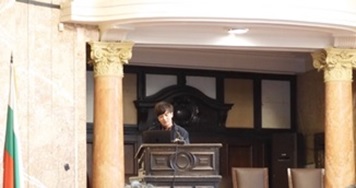
The National Institutes for the Humanities (NIHU) sends young scholars who participate in NIHU Research Projects and Co-creation Initiatives to international seminars and overseas research institutions, including universities. These endeavors promote Institute-based research projects and support young scholars in their international research activities, including presentations at overseas academic conferences.
In this issue, we feature a report from OI Masao, at the time researcher at both NIHU and the National Museum of Japanese History, who was dispatched to Bulgaria.
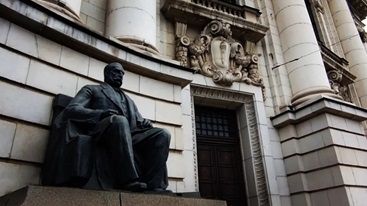
I had the opportunity to present at the 34th EAJRS Conference (the 34th Annual Conference of the European Association of Japanese Resource Specialists), held at Sofia University, Sofia, Bulgaria. The trip was made possible by financial support under the FY2024 NIHU Overseas Visit Program for Young Researchers. I was also honored to receive one of the grants awarded to presenters at the conference. I am deeply grateful to the NIHU headquarters, the National Museum of Japanese History, and all those involved with EAJRS and Sofia University for affording me a valuable opportunity to present my research outcomes and network within the academic community, and for their generous assistance with administrative and other arrangements.
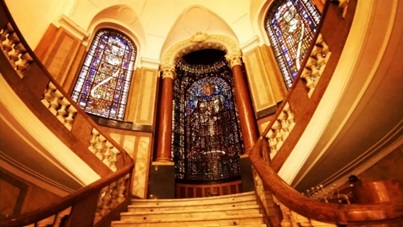
As described below, I presented on the theme of “Development of DH Educational Video Lectures and Podcast LOD: Connecting Japanese Humanities Research and Related Resources to Society and the Future by Providing Researcher Narratives.”
In recent years, interest in Digital Humanities (DH) has been growing worldwide, and with it, high expectations for educational content to foster human resources in this field. In Japan, however, there are not many institutions organizationally capable of delivering DH education. As a result, there is little accumulated curriculum, and systematic conduct of DH education remains difficult. Another challenge is the scarcity of opportunities to learn about the benefits and potential of DH in the first place, which results in many people feeling hesitant about approaching the field—a situation that poses an obstacle to human resource development. Moreover, the diversity and breadth of both the research subjects in the humanities and methodologies in information science create further uncertainty over where and how to begin approaching the field of DH. In my presentation, I identified two essential requirements for addressing this situation:
1. Archiving and disseminating the personal narratives that highlight the benefits and potential of DH research (creating both “stock” and “flow”).
2. Developing a staged and layered curriculum that enables proactive, self-directed study of DH research.
Traditionally, humanities researchers have shared their work mainly through academic papers and conference presentations. Nevertheless, the behind-the-scenes—and often unique and engaging—experiences, anecdotes, insights, and reflections connected to their research tend to go unshared, and their potential contribution to society is lost. I believe it is valuable to collect such information and create a digital archive (“stock”), and also to connect and organize related information, adding value through curriculum design and other means to inspire and facilitate communication (“flow”). In an example of real-world implementation, the NIHU DH Promotion Office has developed a DH educational lecture series and a DH podcast and LOD project, which attach humanities’ researchers’ personal narratives to their research and related resources, helping to publicize their stories and ensure they are carried on for the benefit of future generations.
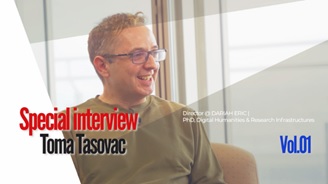
The DH Educational Lecture Series produces video content designed to inspire interest and motivation among students and young researchers who may feel hesitant to approach the field of DH, as well as respond to senior scholars who are interested in DH research, motivating them to enjoy putting DH into practice. It also aims to disseminate the often-unarticulated experiences and knowledge of researchers, making them more broadly reproducible and applicable. Below are some previously covered lecture topics, as well as those scheduled through the end of this fiscal year:
NIHU DH Educational Lecture Series season 1 topics/themes
• Introduction to DH
• Benefits of DH
• DH and knowledge bases
• How DH connects with society
• DH and co-creation with the general public
NIHU DH Educational Lecture Series season 2 topics/themes
• Intellectual property (rights management)
• Linked Open Data (LOD)
• Digital history (DHis)
• Research data management (RDM)
• Text Encoding Initiative (TEI)
• International Image Interoperability Framework (IIIF)
For season 3 and beyond, more specialized and concrete educational programs are being considered. We are also advancing collaboration with Europe’s DH infrastructure, DARIAH-EU; as part of these efforts, we featured Toma Tasovac (then director of DARIAH-EU) in a special edition, and we are implementing plans for mutual content-sharing and collaborative management. While the project is in its early stages and still taking shape, the current outline of our vision is as follows:
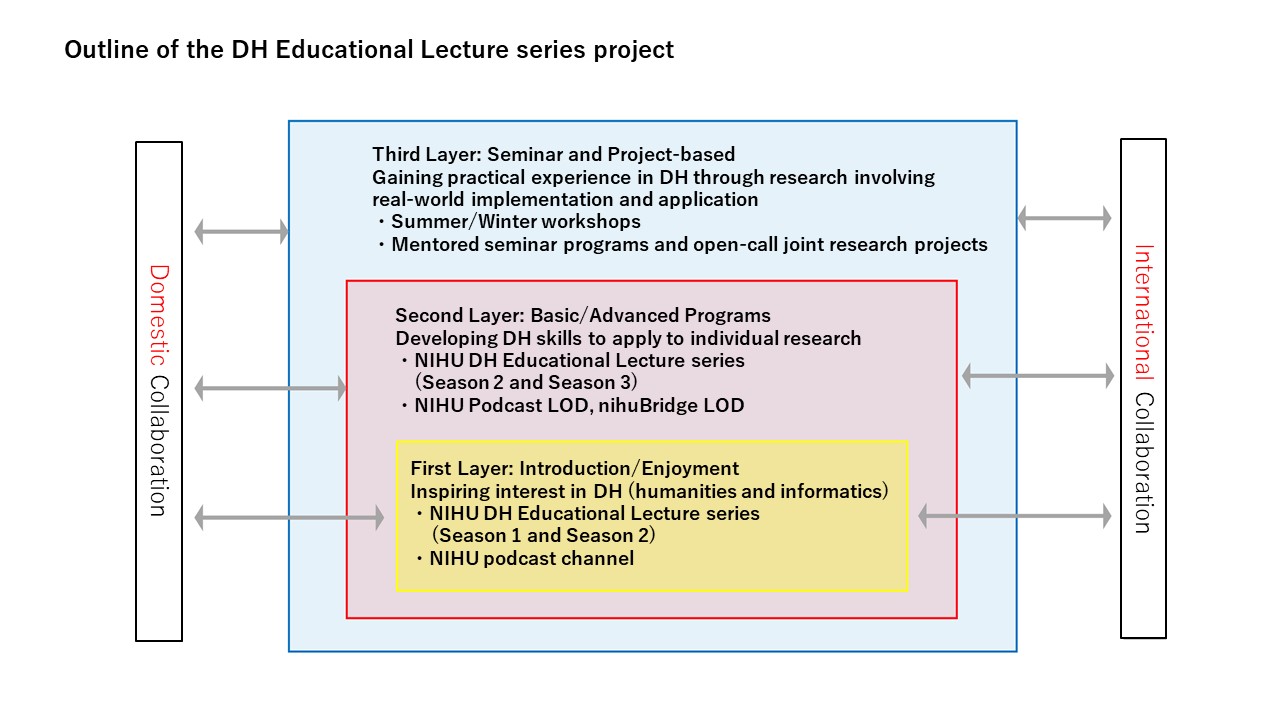
The DH podcast and LOD project produces a podcast channel in which research materials serve as conversation starters and researchers’ narratives are presented in conjunction with various related resources. We are also considering converting this data into Linked Open Data (LOD) using the Resource Description Framework (RDF). So far, we have archived a wide range of oral histories, insights, and research reflections from scholars in diverse fields such as folklore (yōkai), languages (dialects and Egyptian), and archival preservation. This archive serves not only as valuable educational content but also as enjoyable entertainment, allowing listeners to casually experience DH, much like tuning into a radio program. Furthermore, by highlighting connections between these spoken narratives and related academic papers and texts, we hope to facilitate unexpected encounters and serendipitous discoveries.
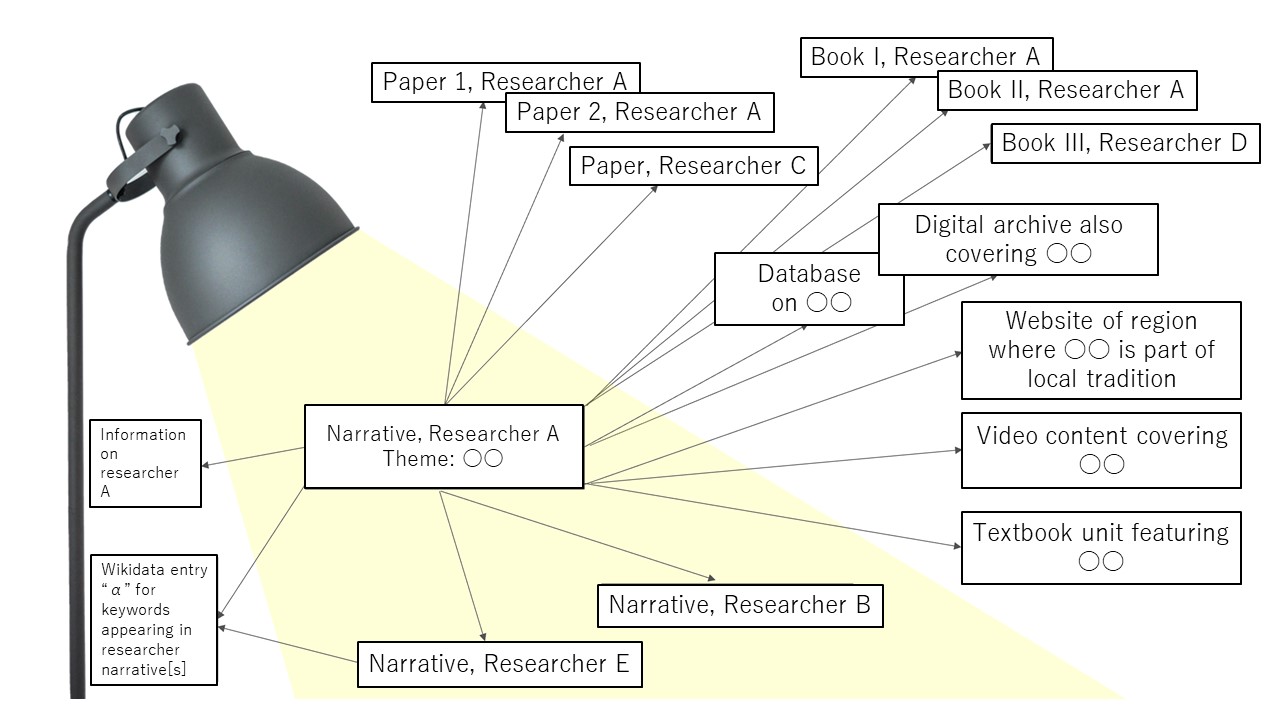
Going forward, we aim to establish seamless, machine-readable connections between these project contents and data from overseas communities such as EAJRS. In doing so, we hope to explore new systems of collaboration for advancing international DH research and co-creation in the field of DH. My presentation at EAJRS swiftly received positive feedback from scholars in the humanities, along with concrete proposals for collaboration and co-creation in next year’s workshops and presentations. From a networking perspective as well, the presentation proved to be a highly valuable opportunity.
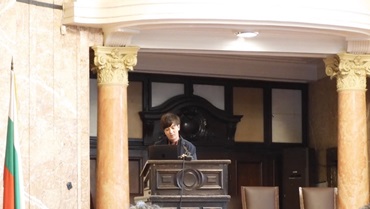
After the conference, I traveled to the Netherlands to visit EuroClio, an international organization that connects the most pioneering and hands-on communities involved with the Europeana educational platform, as well as Erasmus University and the Royal Danish Library. In addition to meetings and discussions, we held workshops, which gave us a strong sense of the potential for international collaboration in the use and co-creation of digital resources. These interactions have already blossomed into concrete, fast-moving partnerships, including plans to give a joint presentation at an international conference within this fiscal year. (I hope to report separately on these activities and their progress at a later date.) I believe one key factor driving the progress of these partnerships is the mutual enthusiasm and excitement we experience during co-creation. I am deeply grateful for the opportunity to meet many inspirational colleagues, and I will continue striving to advance my research and the horizons of my scholarship. Thank you very much for your support.
OI Masao
Specially Appointed Associate Professor, National Institutes for the Humanities / National Museum of Japanese History (affiliation at the time of writing)
